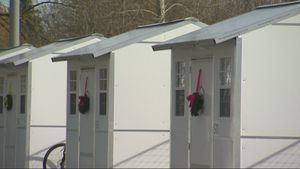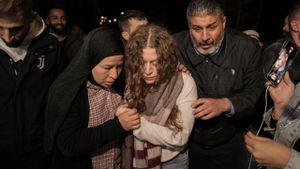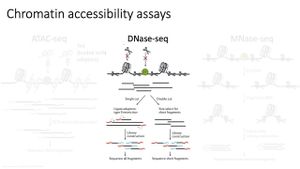North Korean troops are reported to have withdrawn from the front lines of the conflict in Ukraine, marking yet another significant development amid heavy combat losses. Ukrainian and American officials indicate these forces have not been observed on the battlefield for approximately three weeks, leading to speculations about their future role.
Initially, around 11,000 North Korean soldiers were sent to support Russian military efforts back in November last year, strategically aimed at assisting Vladimir Putin's forces as they grappled with manpower shortages due to the war's relentless attrition. The Russian army typically suffers around 1,600 casualties daily, which compounded the urgency for additional support. With reports indicating daily losses ranging from 48,000 to 150,000 Russian soldiers over several months, the arrival of these North Korean units was perceived as dire by Ukrainian military analysts.
Despite their fierce reputation, North Korean soldiers quickly became known for employing brutal and unorthodox tactics—frequently risking their own lives rather than surrendering. A Ukrainian commander, known by the call sign Pokémon, recounted the challenges faced by these North Korean troops—especially their lack of familiarity with modern warfare tactics, such as drone combat. "They don’t take our prisoners. All of our servicemen we found are shot in the back of the head," he said, highlighting the fierce commitment of the North Korean fighters.
The South Korean National Intelligence Service has reported staggering casualty statistics among the North Korean ranks, estimating about 300 deaths and 2,700 injuries since their deployment. The harsh realities of the battlefield, combined with the troops’ lack of experience and training, posed significant challenges from the outset.
The withdrawal was spurred by these intense losses, forcing many military analysts to ponder the likelihood of North Korean reinforcements. "The presence of DPRK troops has not been observed for about three weeks, and they were probably forced to withdraw after suffering heavy losses," Colonel Oleksandr Kindratenko stated, giving clarity to the significant shift in the conflict dynamics.
What inspired the initial deployment, according to several reports, was not merely the ideological alliance but also the practical needs of the Russian military. North Korea's ability to provide manpower stands as both a benefit and concern for the Russian regime, especially as Vladimir Putin continues to navigate the complex repercussions of the conflict with Ukraine.
Some North Korean soldiers reported adapting to their training conditions under extreme duress, as referenced by writings discovered post-capture. "When the bait remains stationary, the drone will stop and crash," one diary entry stated, showcasing their strategies for dealing with enemy drone technology. Nonetheless, many such tactics proved ineffective, resulting instead in significant operational failures and high casualty rates.
Contributing to the narrative of life as a North Korean soldier, recent discoveries of diaries revealed the mindset of troops caught between fierce loyalty to Kim Jong Un and the stark reality of loss. One entry read, "I will demonstrate unparalleled bravery to its fullest. World, watch closely," illustrating the intense indoctrination and expectations placed upon these soldiers.
While the announcement of troop withdrawals raises the question of whether they will return, analysts suggest their absence may provide strategic openings for Ukraine to capitalize upon. The apparent effectiveness of Ukrainian operations to combat imaging and drone attacks served as both inspiration and strategy moving forward.
Though the Ukrainian forces face their own multitude of challenges—sustaining high casualty rates against persistent Russian offensives—this shift may empower their decisions on hammering down upon Russian positions without the additional pressure of North Korean support.
Looking to the future, the interaction between North Korea and Russia could evolve depending on how the situation matures on the battlefield. Will Putin continue to seek support from Pyongyang, or will international diplomacy deter the North from stepping back onto the field? Military analysts observe these developments closely, knowing full well the historical ramifications of such alliances during times of warfare.
Overall, the withdrawal of North Korean troops marks not just losses for the allies of Russia but also gives Ukraine renewed hope. Now, the focus shifts to whether these foreign forces might regroup and return—or whether they will retreat permanently after experiencing the severe consequences of front-line conflicts.



